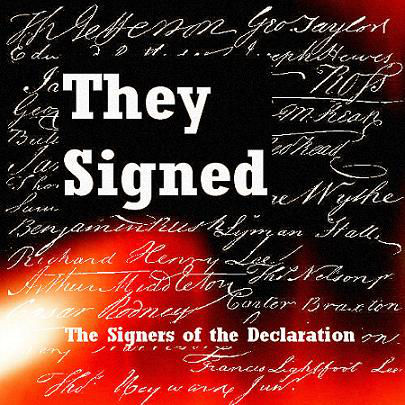🚀 From Google Podcasts to Moon FM in No Time: Your Hassle-Free Migration Guide
👉

Learn more about American history, the American Revolution, and the 56 men who signed the Declaration of Independence in this podcast. From Thomas Jefferson to William Hooper and George Read, the known and unknown Signers are discussed.
Your feedback is valuable to us. Should you encounter any bugs, glitches, lack of functionality or other problems, please email us on [email protected] or join Moon.FM Telegram Group where you can talk directly to the dev team who are happy to answer any queries.